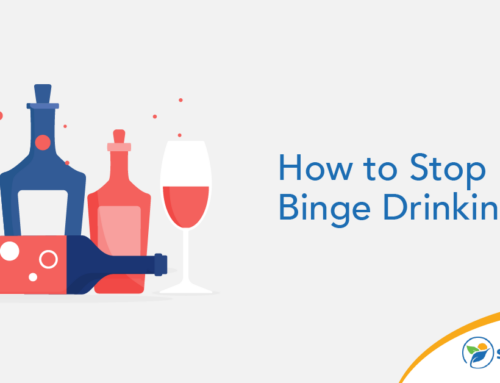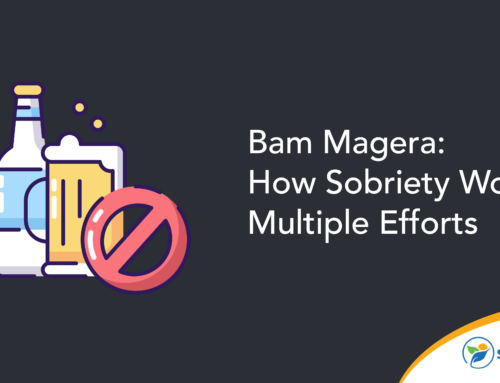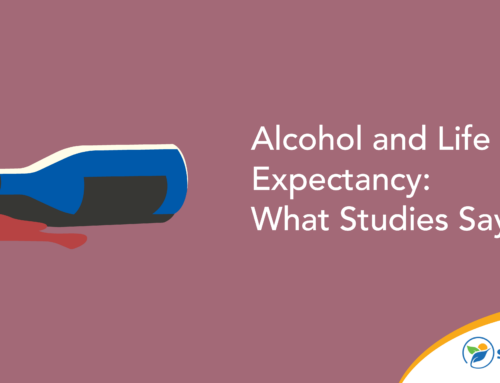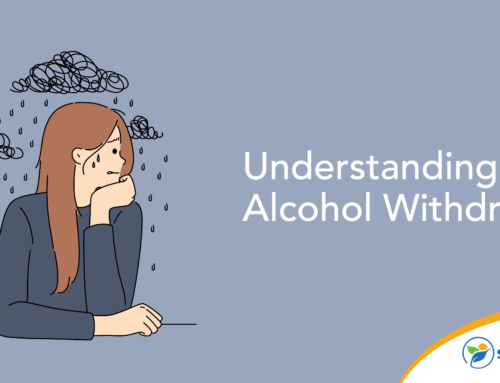Some people are social drinkers, whereas others spend their youth drinking heavily or overindulging during stressful times. Some in the latter group may decide to stop or reduce their drinking and can do so quite easily. Others find moderating their drinking almost impossible.
The dangers of alcoholism are well-known, so why do some people develop alcoholism while others — even those in the same family — can keep their consumption in check with relative ease? What causes alcohol use disorder?
Many factors are at play, and addiction specialists have spent a long time investigating the causes of alcohol use. Often, a person has more than one risk factor, which magnifies their risk for the condition. Fortunately, help is available for those predisposed to alcoholism.
What Is Alcoholism?
Alcoholism refers to a pattern of alcohol use that reaches an unhealthy level. Someone who has alcohol use disorder may be preoccupied with drinking and unable to stop even if they know continuing their behavior will result in negative consequences. Over time, someone with the disease of alcoholism may find it necessary to drink more and more to feel the desired effects. If they stop drinking, they may experience uncomfortable physical withdrawal symptoms.
There isn’t a hard line that defines when “drinking a lot” becomes alcoholism. Just as the question of what causes alcoholism has several answers, the same could be said about the threshold of alcoholism. If a person’s drinking adversely impacts their life and they’re unable to control that drinking, this is a strong indicator of alcoholism. That’s true even if they aren’t drinking a significant amount of alcohol. After all, everyone has different thresholds, and the amount one person considers a lot of alcohol may be viewed as a small amount by another.
What Causes Alcohol Use Disorder?
So, what’s the cause of alcoholism? Experts have long debated this question, and some potential answers exist. One of the most commonly cited alcoholism causes is family history. However, researchers haven’t yet isolated a single gene that causes alcoholism, and a family history of alcohol use disorder doesn’t guarantee someone will have issues with their own alcohol use.
So why do people become alcoholics? Many causes of alcohol use disorder appear to exist. Having one or more of these risk factors increases a person’s chances of developing an alcohol addiction:
1. Genetics
Genetic factors play a large role in a person’s predisposition to developing alcohol use disorder. Researchers have identified two specific genes — ADH1B and ALDH2 — that impact how a person metabolizes alcohol. These genes raise acetaldehyde levels in the body, which decreases the rate of alcohol metabolization. As a result, this gene combination has been shown to increase the risk of alcoholism.
Of course, this is just the beginning of this type of research. More genes are being discovered that also impact alcohol use disorder risk. The lesson here is that while some genes may put a person at greater risk, no single “alcoholism” gene exists.
The presence of one of the genes doesn’t automatically ensure the development of a drinking problem. Instead, this risk is magnified in an individual when combined with other factors, such as upbringing and environment.
2. Family History
Many studies have explored the link between adopted children and biological parents to understand how a family history of alcoholism comes into play. Studies looking at alcoholism in twins found a greater risk of alcoholism in those whose biological parents had a history of alcoholism than those whose adoptive parents were alcoholics. Put simply, nature is a greater alcoholism risk factor than nurture. However, those raised in an environment of heavy alcohol consumption may still be at an increased risk.
Overall, children who grow up with alcoholic biological parents are four times more likely than others to develop alcohol use disorder themselves.
3. Environment
Of all the factors related to the development of alcoholism, a person’s environment is perhaps the most overlooked. Those who spend a lot of time around others who are alcoholics or where drinking is normalized are at a greater risk of alcoholism.
This is most clearly seen when observing certain cultures or ethnicities that have higher reports of alcohol consumption and alcohol misuse. Previous studies have noted that in the United States, white, Native American and Hispanic communities have disproportionately high rates of drinking.
However, this is a complicated issue that can’t be explained by saying some ethnic groups drink more. Drinking might indeed play a larger role in some cultures. For example, while wine is integrated into most people’s daily routines in France and Italy, other factors, such as socioeconomic conditions, also likely play a significant role in drinking behaviors. However, it’s clear that the more a person is immersed in a drinking culture, the more likely they are to get swept up in it.
4. Mental Health
A person suffering from two or more mental health issues simultaneously is said to have co-occurring disorders. Substance abuse disorders — such as alcoholism — and mental health conditions are among the most common co-occurring disorders. According to the National Institute on Drug Abuse, of the 20.3 million adults who have a substance abuse disorder, almost 40% of them also have some mental illness.
The challenge with co-occurring disorders is that they can happen simultaneously or one can trigger the other. For example, someone who starts to drink excessively might develop depression as they battle their condition. On the other hand, a severely depressed individual may turn to alcohol to cope.
Stress, depression and anxiety are closely linked to alcoholism. Some people drink as a form of self-medication. However, alcohol consumption can negatively impact anxiety and depression, creating a cycle where a person drinks to feel better but unwittingly worsens their situation. Some in this category don’t have a physical alcohol dependence, but they use it as a coping mechanism, making it a behavioral issue.
Individuals battling co-occurring disorders can only truly get help by having all their conditions diagnosed and treated simultaneously. Focusing on only one condition, such as alcoholism, puts them at risk of relapse if their mental health doesn’t improve.
5. Previous Trauma
Someone who’s experienced trauma may be at a higher risk for developing alcoholism. They may turn to drinking as a way to cope with or forget unprocessed trauma. For example:
- Up to 75% of individuals who’ve survived an abusive or violent traumatic event report a drinking problem later.
- Up to 33% of individuals who survive a traumatic accident, illness or disaster later report having developed a drinking problem.
- Those with post-traumatic stress disorder are at a higher risk for alcoholism.
6. Income
Some may be surprised to learn that the wealthy drink more than the underprivileged. A 2022 Norwegian study of people in 40 European countries found that the richer a person is, the more they drink.
When you give this some thought, it makes sense. Alcohol can be expensive and is something a person only indulges in if they have the discretionary budget to do so. Additionally, if a person is wealthy and has more time off (versus someone working two or three jobs to make ends meet), they have more downtime to spend drinking.
7. Early Experimentation With Alcohol
It can be common for teenagers to experiment with drugs and alcohol. However, a clear correlation exists between trying alcohol too young and being at risk for alcoholism. Studies have shown that kids who drink before age 15 are at a higher risk of developing alcohol use disorder later. When comparing adults aged 26 and older, those who started drinking before they turned 15 were 3.5 more likely to have an alcohol problem compared to those who waited until they were 21 to start drinking.
8. High Stress
Stressful life events or living with a constant level of high stress can cause a person to turn to alcohol to cope. However, this can be a slippery slope and can result in a drinking problem in some people.
In particular, a strong connection exists between stress and excessive drinking in women. A 2021 study found that high levels of stress alone can cause women to start excessively drinking, but the same wasn’t true for men. That same year, the National Institute on Alcohol Abuse and Alcoholism released data that showed that, for the first time in history, women were surpassing men in levels of binge drinking. The theorized explanation for this uptick is increased levels of stress in women who try to balance it all — from careers and finances to family care and social obligations.
A few drinks can feel like a quick way to de-stress, but this can turn into a daily habit that spirals out of control.
What Help Is Available for Someone Predisposed to Alcoholism?
Help is available for people predisposed to alcoholism, even if they aren’t currently engaged in problematic drinking. Those who know they’re at risk of addiction or alcoholism could benefit from talking to a mental health professional or addiction expert, such as those at Sunlight Recovery, to learn how to manage their risk factors.
Some who struggle with alcoholism decide the best thing to do is avoid drinking entirely. Others can engage in moderate drinking but must carefully monitor their mental well-being and avoid drinking if their mood is low or they’re stressed.
When to Get Help for Alcoholism
If you’re concerned about your drinking habits, it’s wise to seek help as soon as possible. Long-term alcohol use can be bad for your physical well-being; early action can reduce that damage.
Don’t simply try to stop drinking alone, especially if you’ve been drinking heavily or consistently for a long time. Some alcoholics experience physical withdrawal symptoms, which can be unpleasant and even dangerous. Having support from a medical professional can make the withdrawal process easier.
You may think your alcohol consumption is moderate, but if you’re drinking at inappropriate times or engaging in high-risk behaviors, such as driving while intoxicated, it’s worth seeking professional advice about your alcohol use. A counselor or addiction specialist can help you understand why you’re finding it difficult to abstain from alcohol at certain times and help you take back control of your day-to-day habits.
A Better Life Is Ahead
If you’re concerned about your alcohol use or struggle to find healthy coping mechanisms for day-to-day stresses, don’t hesitate to ask for help. Contact our counselors today. The Sunlight Recovery team is here to help you on the path to recovery.







